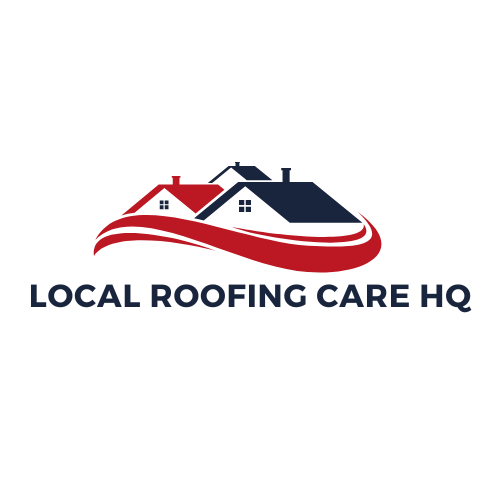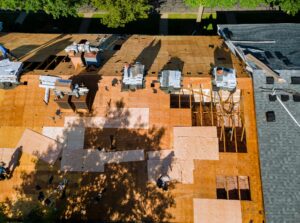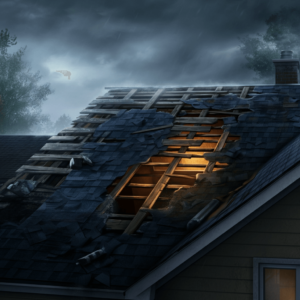Regarding protecting your home, understanding roof repair warranties is essential.
These warranties safeguard your investment and clarify what you can expect in terms of coverage for materials and workmanship.
This article explores the various types of roof repair warranties, what they cover, and what they don’t.
It discusses the factors that can affect their validity and provides tips on how to keep your warranty intact.
Stay informed to ensure your roof remains a reliable shield against the elements.
- What Is a Roof Repair Warranty?
- What Are the Different Types of Roof Repair Warranties?
- What Is Covered Under a Roof Repair Warranty?
- What Is Not Covered Under a Roof Repair Warranty?
- How Long Do Roof Repair Warranties Last?
- What Factors Affect the Validity of a Roof Repair Warranty?
- What Should You Do If You Encounter a Problem Covered by Your Roof Repair Warranty?
- How Can You Ensure Your Roof Repair Warranty Stays Valid?
- Frequently Asked Questions
- What is a roof repair warranty?
- Why is it important to understand roof repair warranties and written warranty agreements?
- What types of warranties are available for roof repairs?
- How long do roof repair warranties typically last?
- What factors can void a roof repair warranty?
- Can a roof repair warranty be transferred to a new homeowner?
What Is a Roof Repair Warranty?
.jpg_00.jpeg)
A roof repair warranty is a critical document that provides homeowners essential protection against potential damages and defects associated with roofing systems. It outlines the terms and conditions under which repairs will be covered, ensuring that the homeowner is shielded from unexpected repair costs.
This warranty can cover various aspects, including workmanship and material defects, offering peace of mind when selecting a roofing contractor. Understanding the nuances of your warranty can help in navigating claims processes and exclusions effectively, thereby safeguarding your investment in roofing maintenance and structural integrity.
What Are the Different Types of Roof Repair Warranties?
There are several distinct types of roof repair warranties available, each designed to protect homeowners against specific issues related to roofing systems. Understanding these warranties is crucial as they vary in coverage, duration, and terms.
Manufacturer’s warranties typically cover defects in roofing materials, while contractor’s warranties focus on workmanship and installation errors. Extended warranties may offer additional protection beyond the standard coverage, and knowing how warranty transfer works can impact future property value.
Each type plays a significant role in overall roof maintenance and insurance policy compliance.
1. Manufacturer’s Warranty
A manufacturer’s warranty is a guarantee provided by roofing material vendors to ensure their products are free from defects and meet industry standards. This type of warranty typically covers specific materials such as shingles, tiles, and metal roofing, and is vital for homeowners looking to protect their investment in durable roofing solutions. It’s essential to register these warranties promptly to ensure full coverage, as this can influence the claim process in case of defects or performance issues.
These warranties usually have specific limitations and exclusions, often excluding damage caused by improper installation, neglect, or natural disasters.
It’s crucial for property owners to maintain meticulous documentation of purchases and any maintenance performed, as this can support warranty claims.
Understanding the nuances of these warranties can help prevent costly unexpected expenses, especially when facing roofing repairs.
Key factors such as the quality of installation significantly impact performance, making it imperative for homeowners to engage qualified professionals who adhere to industry best practices.
2. Contractor’s Warranty
A contractor’s warranty is a crucial component of any roofing project, offering homeowners assurance that the installation will adhere to industry standards and local regulations. This warranty primarily covers workmanship and ensures that the contractor is liable for any installation errors that may arise, providing peace of mind during the roof’s lifespan. Understanding the terms of this warranty can assist homeowners in navigating any potential claims and ensures they receive the service expected from a licensed contractor.
Typically, such a warranty encompasses not only the quality of workmanship but also compliance with relevant roofing codes, underscoring the contractor’s commitment to excellence and safety.
It often includes provisions for claims assistance and dispute resolution, which are vital for addressing any concerns should issues arise after installation. This support not only fosters customer satisfaction but also strengthens the trust between homeowners and contractors.
By having these mechanisms in place, homeowners can rest assured that their investment is protected and that they have recourse if the need arises.
3. Extended Warranties
Extended warranties offer additional coverage beyond standard roofing warranties, providing homeowners with enhanced protection against potential repair costs over an extended warranty period. These warranties are especially beneficial for those looking to secure long-term financial protection for their roofing systems. Often, extended warranties can include provisions for regular maintenance checks and services, ensuring the roof remains in optimal condition throughout its lifespan.
By opting for such plans, homeowners gain peace of mind, knowing that unexpected repairs won’t strain their budgets.
Coverage options can vary widely, potentially handling damages from storms, leaks, and other wear and tear. It’s crucial for individuals to thoroughly read the terms and conditions of their extended warranties.
Understanding limitations, such as what specific damages are excluded and how claims are processed, can prevent disappointments later.
In the realm of roofing, being informed can lead to better maintenance choices and ultimately protect a homeowner’s investment.
What Is Covered Under a Roof Repair Warranty?
A roof repair warranty typically covers a range of issues, providing essential protection for homeowners against various unforeseen circumstances. Coverage can encompass material defects, workmanship issues, and even damage caused by severe weather conditions, ensuring that homeowners can address these problems without incurring significant repair costs.
Understanding the exclusions list is also crucial, as it outlines specific situations that may not be covered under your insurance policy, helping homeowners make informed decisions regarding their roof maintenance.
1. Material Defects
.jpg_01.jpeg)
Material defects refer to flaws in roofing materials that compromise the structural integrity of the roof, and they are one of the primary concerns covered by roof repair warranties. Such defects can lead to significant replacement costs if not addressed promptly, making it essential for homeowners to report them to their contractors or manufacturers immediately. Understanding the scope of warranty coverage related to material defects can help homeowners navigate the claim process effectively.
Common types of material defects include:
- Delamination, which occurs when layers of roofing materials separate;
- Insufficient thickness, where the materials do not meet industry standards;
- Poor adhesion, which can lead to water infiltration.
These issues not only jeopardize the roof’s performance but can also create further complications, such as increased energy costs and potential water damage.
Timely reporting of these defects is crucial, as many warranties stipulate specific timeframes for claims. Addressing problems early can lead to less invasive repairs and lower overall replacement costs, ultimately safeguarding the homeowner’s investment.
2. Workmanship Issues
Workmanship issues arise from errors during the installation process and are a significant concern that roof repair warranties aim to address. These issues can compromise the roof’s performance and longevity, putting the homeowner at risk of incurring additional repair costs. A reliable contractor’s warranty provides assurance that the contractor is liable for any workmanship-related problems that may occur during the warranty period.
In this context, the contractor’s responsibility becomes crucial; they must ensure that their work meets industry standards to prevent future complications. Homeowners must understand that a subpar installation can lead to a host of problems, including leaks or structural damage.
This is where a solid contractor’s warranty plays a vital role, acting as a safeguard against unforeseen issues. It not only protects the homeowner’s investment but also fosters transparency between the contractor and the client, ultimately ensuring peace of mind during the warranty period.
By holding the contractor accountable, the warranty helps maintain the integrity of the home’s roofing system, minimizing the risk of costly repairs down the line.
3. Weather Damage
Weather damage is a common concern for homeowners, particularly in regions prone to harsh environmental conditions. Roof repair warranties often include coverage for damage caused by severe weather events, helping homeowners mitigate repair costs associated with such incidents. Understanding the specific terms of warranty coverage regarding weather damage can ensure homeowners are adequately prepared for potential claims under their insurance policy.
Different types of weather damage, such as hail impacts, wind uplift, and ice dams, can compromise a roof’s integrity significantly. Homeowners may find themselves facing costly repairs if they don’t fully grasp their warranties.
It’s crucial to pay attention to coverage limits and any exclusions that may specifically address the conditions under which claims can be filed. Some warranties might offer different levels of protection, emphasizing the need for thorough documentation and regular roof inspections.
By being proactive and knowledgeable about these factors, homeowners can make informed decisions that protect their investments and ensure they don’t get caught off-guard during adverse weather events.
What Is Not Covered Under a Roof Repair Warranty?
Understanding what is not covered under a roof repair warranty is equally important as knowing what is included, as exclusions can significantly impact the homeowner’s financial responsibility for repairs. Common exclusions include damage resulting from improper maintenance, installation errors, and lack of compliance with local regulations. Familiarizing oneself with these limitations helps homeowners avoid unexpected claim denials and ensures they take proactive measures for their roofing systems.
Many warranties may not cover wear and tear from natural aging, extreme weather conditions, or even issues related to pests. This can place the financial burden squarely on the homeowner, who may be left to deal with costly repairs that the warranty does not address.
Regular inspections and timely maintenance are vital for compliance with warranty terms and can help homeowners mitigate these risks, ensuring their investment is protected and minimizing the chances of facing significant out-of-pocket expenses down the line.
How Long Do Roof Repair Warranties Last?
The duration of roof repair warranties can vary significantly depending on the type of warranty and the materials used in the roofing system. Typically, warranties can last anywhere from a few years to several decades, providing different levels of coverage during that period. Homeowners should be aware of the warranty period and any renewal options available to ensure continued protection against repair costs.
Different roofing materials, such as asphalt shingles, metal, or tile, come with distinct warranty durations, often influenced by aspects like climate and installation quality.
For example, a metal roof might offer a longer warranty compared to traditional asphalt shingles, which typically feature a shorter span of coverage. This variation highlights the importance of understanding not only what is covered but also how to maintain the warranty by performing regular inspections and timely repairs.
Knowing the specific renewal options can help homeowners avoid lapses in coverage, ensuring peace of mind as they protect such a critical part of their home.
What Factors Affect the Validity of a Roof Repair Warranty?
Several factors can affect the validity of a roof repair warranty, potentially impacting the homeowner’s ability to make claims in the future. Proper installation by a licensed contractor is paramount, as any installation errors can void warranty coverage.
Additionally, regular maintenance and compliance with local regulations are essential for ensuring that the warranty remains valid throughout the roofing system’s lifespan.
1. Proper Installation
.jpg_10.jpeg)
Proper installation is a critical factor in maintaining the validity of a roof repair warranty, as it ensures that the roofing system adheres to industry standards and local building codes. Engaging a licensed contractor who understands these requirements is essential for effective and compliant installation, significantly reducing the likelihood of workmanship issues that could void the warranty.
It’s vital that the contractor is familiar with local regulations, as this can vary significantly by region. They should provide documentation that confirms adherence to safety protocols and best practices, which not only safeguards the homeowner but also enhances the longevity of the roof itself.
A reputable contractor typically has established relationships with manufacturers, enabling them to offer better warranty options and support in the event any issues arise down the line. This informed approach to installation not only protects investments but can also lead to potential savings through enhanced energy efficiency and reduced maintenance costs.
2. Regular Maintenance
Regular maintenance is vital for ensuring the ongoing validity of a roof repair warranty, as it allows homeowners to identify and address potential issues before they escalate into costly repairs. Routine roof inspections and preventative maintenance help maintain the warranty’s coverage and safeguard the homeowner’s investment in their roofing system.
By adhering to a schedule of annual inspections, homeowners can catch minor wear and tear early, ensuring that small problems do not develop into major concerns.
Timely repairs of any identified issues are equally important, as they not only uphold the terms of the warranty but also extend the lifespan of the roof.
Thorough documentation of all maintenance activities can be crucial; having a detailed record of inspections and repairs can strengthen warranty claims, providing evidence that the homeowner has diligently adhered to the warranty’s requirements, thereby enhancing their defense against potential disputes with manufacturers.
3. Weather Conditions
Weather conditions can significantly impact the validity of a roof repair warranty, as certain weather-related damages may or may not be covered under the warranty terms. Homeowners should be aware of the coverage limits relating to extreme weather events and ensure compliance with any maintenance requirements specified in their warranty documentation.
Understanding the implications of storms, high winds, and extreme heat is essential for anyone responsible for a roofing system. For instance, a heavy downpour or hailstorm might lead to leaks or structural damage, which could fall outside the scope of coverage if proper precautions aren’t taken.
Homeowners should review their warranty closely, noting any clauses that specify actions to mitigate risks presented by harsh climates. Regular inspections and timely repairs not only preserve structural integrity but also help maintain warranty validity, ensuring that the homeowner is protected against unpredictable weather events.
What Should You Do If You Encounter a Problem Covered by Your Roof Repair Warranty?
Encountering a problem covered by your roof repair warranty can be stressful, but understanding the steps you need to take can simplify the claims process significantly. The first action should be to document the issue thoroughly, including photographs and notes about the nature of the problem. Timely reporting to your contractor or manufacturer is essential to ensure that the warranty coverage remains intact and that you can address the repairs efficiently.
It’s crucial to gather all necessary documentation, such as the original warranty agreement and any previous repair records. This ensures that you have a comprehensive overview of your coverage, which is vital when you submit a claim.
Be prepared to outline when and how the issue occurred, as well as any correspondence already made regarding the problem. Following these steps not only aids in a smoother claims experience but also reinforces the importance of adhering to the specified claims process, maximizing the likelihood of approval for your warranty claim.
How Can You Ensure Your Roof Repair Warranty Stays Valid?
Ensuring that your roof repair warranty remains valid requires proactive management of your roofing system and adherence to specific terms and conditions set forth by your warranty provider.
Keeping detailed records of maintenance and repairs is essential, as is hiring a reputable contractor for any work performed on your roof.
By understanding the warranty’s terms and conditions, homeowners can navigate potential challenges and maintain their coverage effectively.
1. Keep Records of Maintenance and Repairs
Keeping meticulous records of all maintenance and repairs performed on your roof is crucial for maintaining the validity of your roof repair warranty. This documentation serves as evidence of compliance with warranty requirements and can be essential for supporting claims in case of future issues. Homeowners should consider organizing records in a dedicated file for easy reference.
To ensure comprehensive documentation, it is advisable to retain various types of records, including:
- receipts for materials and services,
- detailed inspection reports that outline the condition of the roof over time,
- and maintenance logs that track every repair or routine check conducted.
Such records not only provide a clear picture of the roof’s history but also bolster the credibility of any warranty claims. When issues arise, having this organized framework allows homeowners to present a strong case, demonstrating that all recommended procedures were followed consistently, thereby protecting their investment in the long run.
2. Hire a Reputable Contractor
.jpg_11.jpeg)
Hiring a reputable and licensed contractor is paramount for ensuring the validity of your roof repair warranty, as it directly impacts the quality of workmanship and compliance with roofing codes. An experienced contractor will adhere to industry standards, thereby reducing the risk of installation errors that could void the warranty.
Along with proper certification, it’s crucial to evaluate customer reviews and testimonials to get an idea of the contractor’s reliability and service quality.
A qualified contractor will possess a solid track record of successful projects and satisfied clients, showcasing their competence in handling various roofing issues.
Such professionals not only ensure adherence to warranty requirements but also enhance the overall performance and longevity of the roofing system.
Their expertise in materials and techniques can lead to more efficient installations that withstand the test of time and environmental stresses.
3. Understand the Terms and Conditions of Your Warranty
A thorough understanding of the terms and conditions of your roof repair warranty is critical for ensuring compliance and protecting your homeowner rights. These terms outline what is covered, the limitations, and the responsibilities of both the homeowner and the contractor. Familiarizing yourself with these details will prepare you for any claims process that may arise in the future.
Homeowners should pay special attention to key elements such as coverage limits, which define the maximum amount the warranty will pay, and exclusions that may void the warranty under certain circumstances.
These exclusions might include damages caused by natural disasters or neglect, highlighting the need for proper maintenance. By being proactive in reviewing these details, individuals can sidestep potential issues and ensure that they remain fully protected should any problems occur after the repair.
Understanding these nuances not only fosters peace of mind but also give the power tos homeowners to make informed decisions about their roof care.
Frequently Asked Questions
What is a roof repair warranty?
A roof repair warranty is a written guarantee that provides coverage for any repairs or replacements needed on your roof within a specific time period after the initial repair has been completed.
Why is it important to understand roof repair warranties and written warranty agreements?
Understanding roof repair warranties is important because it ensures that you know what is covered, for how long, and under what circumstances. This knowledge can save you from unexpected expenses and disputes with your contractor.
What types of warranties are available for roof repairs?
There are typically two types of warranties for roof repairs: manufacturer warranties and contractor warranties. Manufacturer warranties are provided by the manufacturer of the roofing materials and cover any defects or failures of the materials. Contractor warranties are provided by the contractor and cover the labor and workmanship of the repair.
How long do roof repair warranties typically last?
The length of roof repair warranties can vary, but they typically last anywhere from 1 year to 10 years. Some warranties may even offer lifetime coverage. It’s important to read the terms and conditions of the warranty to understand the length of coverage.
What factors can void a roof repair warranty?
There are several factors that can void a roof repair warranty, including improper maintenance, neglect, and failure to follow the warranty’s terms and conditions. It’s important to understand these factors and follow any necessary guidelines to keep your warranty valid.
Can a roof repair warranty be transferred to a new homeowner?
It depends on the type of warranty and the specific terms and conditions. Some warranties may be transferable to a new homeowner, while others are non-transferable. It’s important to check with the warranty provider to determine if the warranty can be transferred.




